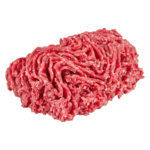Henry Avocado Corporation recalled California-grown conventional and organic whole avocados sold in bulk at retail stores because they have the potential to be contaminated with Listeria monocytogenes. The recall is issued out of an abundance of caution due to positive test results on environmental samples taken during a routine government inspection at its California packing facility. There are no reported illnesses associated with this recall. Henry Avocado’s facility in California distributed its products in Arizona, California, Florida New Hampshire, North Carolina, and Wisconsin. @ https://www.fda.gov/Safety/Recalls/ucm634230.htm?utm_campaign=Henry%20Avocado%20Recalls%20Whole%20Avocados%20Because%20Of%20Possible%20Health%20Risk&utm_medium=email&utm_source=Eloqua
ruth
Henry Avocado Corporation is voluntarily recalling California-grown whole avocados sold in bulk at retail stores because they have the potential to be contaminated with Listeria monocytogenes. Henry Avocado is issuing this voluntary recall out of an abundance of caution due to positive test results on environmental samples taken during a routine government inspection at its California packing facility. There are no reported illnesses associated with this recall.
ruth
FDA proposed new funding across multiple aspects of food safety, believing that they must invest to prevent problems from happening by further implementing of FSMA. For Fiscal Year 2017, FDA Center for Food Safety and Applied Nutrition responded to 794 recall events due to issues such as microbial contamination and undeclared allergens and oversaw the recall of 3,609 products. Whole Genome Sequencing (WGS) has made it easier to determine the source of contaminated food associated with human illness, and to better identify foodborne outbreaks. FDA intends to extend its use. Efficiently tracking and tracing regulated products is another area of focus. Using emerging technologies, including blockchain, to allow the FDA to intervene in time to alert consumers, implement recalls, and avoid human illnesses. FDA also is working to secure the safety of imported foods, requesting more resources to focus on import oversight. @ https://www.fda.gov/NewsEvents/Newsroom/PressAnnouncements/ucm633864.htm
New steps to strengthen FDA’s food safety program for 2020 and beyond
ruth
The U.S. Department of Agriculture’s Food Safety and Inspection Service (FSIS) announced That La Rosita Fresh Market Inc., from Mt. Prospect, Ill. retail store, recalled approximately 54 pounds of raw ground beef products that may be contaminated with E. coli O157:H7. The raw ground beef items are ground in the store and packaged for consumers behind the meat counter in varying weights. The raw ground beef items were packed on March 13, 2019, and March 14, 2019. These items were only sold in the La Rosita Fresh Market Inc. retail store, located at 1805 W. Algonquin Rd., Mt. Prospect, IL, 60056. The problem was discovered on March 14, 2019, by FSIS investigators through routine product sampling. There have been no confirmed reports of adverse reactions due to consumption of these products. @ https://www.fsis.usda.gov/wps/portal/fsis/topics/recalls-and-public-health-alerts/recall-case-archive/archive/2019/recall-033-2019-release
La Rosita Fresh Market Inc., a Mt. Prospect, Ill. retail store, is recalling approximately 54 pounds of raw ground beef products that may be contaminated with E. coli O157:H7.
ruth
The U.S. Food and Drug Administration issued its final rule and the new compliance dates for the agricultural water requirements in the FDA Food Safety Modernization Act (FSMA) Produce Safety Rule. Larger farms are now required to comply with the agricultural water requirements by January 26, 2022, while small farms have until January 26, 2023, and very small farms until January 26, 2024. This rule does not change the compliance dates for sprout operations. The FDA intends to use the time until compliance to work with stakeholders to address these concerns. FDA remains firmly committed to incorporating lessons learned from these recent outbreaks, and to using the best science available to help minimize the risk that produce can become contaminated. As we continue to work with stakeholders on issues raised regarding the agricultural water requirements, FDA strongly encourages farms to ensure that water is suitable for its intended use and to continue using good agricultural practices to maintain and protect the quality of their water sources. Farms are responsible for ensuring that the food they produce is not adulterated. @ https://www.fda.gov/Food/NewsEvents/ConstituentUpdates/ucm633483.htm?utm_campaign=Agricultural%20Water%20Provisions_3_15_2019%20Email&utm_medium=email&utm_source=Eloqua
FDA issued a rule to finalize the new compliance dates for the agricultural water requirements in the FSMA Produce Safety Rule.



